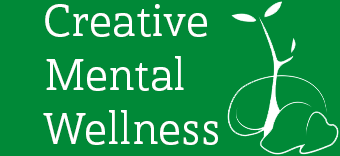Grief
Many of us are stumped on how to support our loved ones who are grieving. Some people may offer food, ask how they’re doing, or distance themselves thinking that the other person might prefer that. There’s no one “correct” way to help someone in grief, but most people could use support in a couple ways – with daily life (cleaning, helping out with the kids, running errands, etc) and with emotions (a shoulder to cry on, someone to vent to).
People who have gone through loss don’t need you to ask how they’re doing; the answer is probably, “not good” and answering that question from all of their peers can be exhausting. Instead you can ask questions like “what can I help with?”, “have you eaten today?”, or just listen compassionately while they speak. If you can visit them, sometimes just having a loved one nearby can be helpful, even if you don’t feel like you’re helping them.
Grief is also not just about people passing away – it can be the loss of a pet, relationship, job, opportunity, and a myriad of other things. Grief is complicated and multifaceted, but supporting those who are grieving doesn’t have to be. Just think – if you lost something or someone meaningful to you, what kind of support would you want?
International Selfcare Day
How am I supposed to do selfcare “the right way?” Selfcare can be a bit tricky – is it face masks and baths, meditation, exercise? Actually, it can be any or all of those. The thing is, selfcare can be any activity that takes care of your mind and body, and activities that help you rest and recharge. So for some this may be meditation and exercise, cozying up with a good book, or taking care of their skin and hair in a more special way. The key to selfcare is finding what works for YOU!
It may take some trial and error; maybe you don’t find baths relaxing, reading could stress you out, and you don’t like the feeling of face masks. So what other options are there? Maybe you enjoy crafts? Painting, drawing, knitting, woodworking, building, and other creative hobbies are great options, and can even be meditative.
If you don’t enjoy working out in the ways we all see – running, weightlifting, pilates, etc. – then you could try hiking, roller skating, dancing (yes, dancing in your living room counts!), martial arts, or other interesting classes in your area like aerial silks and puppy yoga.
Cooking nutritious meals is also selfcare. Whether you’re cooking a hearty stew, throwing together a salad, or prepping snacks, taking care of your body is definitely selfcare. Your body not only needs, but deserves, to be fed a variety of nourishing foods. There is also a place for foods that “nourish your soul” like chips and ice cream, and if your soul needs a bit of extra nourishment in times of stress or sadness, that is normal and it’s okay to eat what feels right at the moment sometimes.
What if I don’t want to go out with my friends? Try having them over! It does not have to be a big event with lots of snack and prep beforehand – you can have your friends over to watch a movie, play board games, or just chat. Simply spending time around loved ones can help recharge your battery and give you the mental strength to push through whatever you’re struggling with.
Ugh I don’t want to read a book about mental health! That’s fine! Reading anything you enjoy, from biographies to fantasy, can be selfcare. As long as you find it enjoyable and/or relaxing, it can improve your mental attitude and fortitude. Reading has been found to even increase empathy! So break out a book you enjoy, get comfortable, and take care of yourself!
This Selfcare Day, do what recharges YOUR batteries and makes you feel better, not what everyone says you “should” do. Whether that’s cooking yourself a nice meal, working on a craft project, or dancing to some music you enjoy, take some extra time for yourself to rest and recharge.
The Power of Reading & Books on Mental Wellness
The Power of Reading & Books for Our Mental Wellness
Between the Pages: How Stories Help Us Heal
What to Read When You’re Feeling… A Guide to Choosing Books for Emotional Support
Stronger Together: How In-Person Book Clubs Boost Your Mental and Physical Health
Affordable Reading: How to Build a Healthy Reading Habit Without Breaking the Bank
The Power of Reading & Books for Our Mental Wellness
By Creative Mental Wellness
In a world full of noise—notifications, to-do lists, social media scrolls—there’s something remarkably soothing about sitting down with a good book. Whether it’s fiction, nonfiction, or poetry, reading has long been a source of knowledge and entertainment. But more than that, reading is also a powerful tool for supporting our mental wellness.
Reading Helps Us Get Out of Our Heads
When we’re feeling anxious, overwhelmed, or emotionally low, our thoughts can feel like a hamster wheel—spinning and spinning with no clear off-ramp. Reading offers us a way out. Immersing ourselves in a story or subject pulls our focus outward, giving our minds a break from looping thoughts and inner dialogue. For those moments, we’re not stuck in our own heads—we’re in another world, walking in someone else’s shoes, or exploring new ideas.
A Healthy Distraction
Distraction often gets a bad rap, but the right kind of distraction can be a healthy coping tool—especially when we’re struggling emotionally. Reading is one of those healthy distractions. It doesn’t numb us or avoid reality; instead, it gently redirects our attention. A few chapters of a favorite novel or a compelling article can bring calm, reduce stress, and even spark joy.
Books Over Screens
Let’s be honest: when we’re not feeling our best, reaching for a phone can feel like second nature. But scrolling through social media often leaves us feeling worse—not better. Reading, on the other hand, engages our minds without bombarding us with comparison, negativity, or information overload. Plus, when we’re holding a book, it’s a lot harder to scroll! Making space for reading—even just 10 minutes a day—can help break the habit of reflexive screen time and create a more mindful routine.
Reading as a Coping Mechanism
Everyone needs a toolbox of healthy coping skills. Reading can absolutely be one of them. It’s accessible, low-cost, and can be done almost anywhere. Whether it’s revisiting a childhood favorite for comfort or diving into a new subject to spark curiosity, reading offers stability and emotional support when we need it most.
We Might Even Learn Something
The bonus? Reading doesn’t just soothe us—it grows us. Every book has the potential to teach us something new—about the world, about others, and about ourselves. That kind of growth can enhance our confidence, deepen our empathy, and remind us of the bigger picture.
So this June, we invite you to rediscover the simple, powerful joy of reading. Your mind—and your mood—just might thank you for it.
Between the Pages: How Stories Help Us Heal
By Creative Mental Wellness
There’s something quietly powerful about cracking open a book—whether it’s the smooth glide of a new hardcover or the soft flutter of pages in a well-worn favorite. What may seem like a simple act of leisure is, in fact, a profound mental health tool.
Reading, especially when it’s intentional and reflective, can be both escape and insight. It offers more than just entertainment. It’s a way to expand our worldview, process our emotions, and find connection—sometimes with characters, sometimes with authors, and often, unexpectedly, with ourselves.
🧠 Mental Health Benefits of Reading
- Stress Reduction: Studies show that reading for just six minutes can reduce stress levels by up to 68%. That’s more effective than listening to music or going for a walk. Immersing ourselves in a narrative gives our brains a break from worry.
- Emotional Regulation: Reading fiction, especially character-driven stories, helps us better understand complex emotions. It enhances empathy by allowing us to “walk in someone else’s shoes”—a practice known to increase emotional intelligence and reduce feelings of isolation.
- Mental Flexibility: Nonfiction books—memoirs, psychology, self-help—give us vocabulary for our own challenges. They can reframe our experiences, offer new coping strategies, or simply let us know we’re not alone.
📖 When Books Become Lifelines
For many of us at Creative Mental Wellness, books have played a key role in recovery and resilience. Some clients report that poetry gave voice to emotions they couldn’t express out loud. Others found strength in memoirs of individuals overcoming addiction or trauma. And for youth navigating anxiety or depression, young adult fiction often mirrors their inner world with comforting accuracy.
One client once told us, “When I couldn’t talk to anyone, I could still talk to books. Or maybe they talked to me.” That’s the magic—books listen without judgment. They offer perspective without pressure.
💡 How to Read for Wellness
- Pick with Purpose: Choose books that nourish you—not just ones you “should” read. Sometimes that means a serious deep dive into mental health, and sometimes it’s a fantasy novel that reminds you how to hope.
- Set the Mood: Make reading part of a calming ritual—light a candle, sip tea, unplug. Let your body and mind know this is your time to reset.
- Reflect & Connect: Consider journaling about what you read or discussing it with a friend, therapist, or book club. The insights can multiply when shared.
Whether you read to understand or to escape, to laugh or to cry, books can be companions in the journey toward wellness. In a world that often demands quick answers and constant noise, books invite us to slow down and be still.
So this June, we invite you to read not just for knowledge—but for comfort, courage, and connection.
📚 What to Read When You’re Feeling… A Guide to Choosing Books for Emotional Support
By Creative Mental Wellness
Books have an extraordinary ability to meet us right where we are. Whether we’re curled up under the weight of sadness or sitting in silence trying to make sense of frustration, the right book can be a balm—or a beacon.
But how do you choose the right book for what you’re feeling?
Here’s a guide to help you select books that gently support mental health by tuning into your emotions. Reading with emotional intention can help you feel understood, offer tools for healing, and sometimes, simply remind you that you’re not alone.
😔 When You’re Feeling Depressed
Try:
- Memoirs of recovery – These stories can validate your experience while offering hope. Look for books by people who’ve navigated depression and found ways through it.
- Gentle fiction – Stories with comforting themes and soft pacing can offer warmth without overwhelm.
- Poetry collections – Short, lyrical works can feel like manageable emotional doses.
Why it helps: Books that reflect your experience can reduce isolation. They also model resilience and can offer new language for your own thoughts.
😟 When You’re Anxious
Try:
- Books on mindfulness or CBT (Cognitive Behavioral Therapy) – These can offer practical tools for calming racing thoughts.
- Engaging but light fiction – Stories that keep you gently absorbed can interrupt anxious thinking patterns.
- Nature writing or travel essays – These provide mental “breathing space” and a calming shift in focus.
Why it helps: The right book can slow your mind, anchor your attention, and introduce grounding techniques without pressure.
😞 When You’re Grieving or Feeling Loss
Try:
- Grief-focused memoirs or essays – Hearing how others cope can be deeply validating.
- Spiritual or philosophical reflections on loss – These offer comfort, not answers, which can be more helpful than advice.
- Books that honor memory – Stories that emphasize legacy, ritual, or remembrance.
Why it helps: In grief, we don’t want to be “fixed”—we want to be seen. Books can normalize grief’s many forms and rhythms.
😤 When You’re Frustrated or Angry
Try:
- Empowering nonfiction – Social justice reads, personal growth, or motivational books can channel anger into action.
- Fiction with strong protagonists – Characters who face injustice and reclaim their power can offer catharsis.
- Journaling companions or expressive writing guides – Sometimes books that invite your voice are the most useful.
Why it helps: Books can validate righteous anger and show how it can be transformed—not ignored or suppressed.
😢 When You’re Lonely or Disappointed
Try:
- Novels about friendship, connection, or belonging – These remind us of the human capacity for love, even in hard times.
- Books with rich, immersive settings – A strong sense of place can give a temporary feeling of “being somewhere,” which reduces loneliness.
- Humorous memoirs or essays – Laughter truly is medicine. Sometimes the lightest touch reaches the deepest places.
Why it helps: Loneliness often makes us feel invisible. Books can provide companionship, conversation, and a sense of being understood.
💡 Tips for Emotionally Aligned Reading
- Start with a feeling: Instead of asking what do I want to read?, try how do I want to feel when I’m done reading?
- Be honest: If a book is too heavy or not helping, it’s okay to stop. Trust your emotional limits.
- Use bibliotherapy lists: Many libraries and mental health professionals offer curated book lists by emotion or experience.
Reading isn’t a cure—but it is a companion. When you choose a book that meets your emotional needs, you’re not just escaping your feelings. You’re honoring them. You’re saying, “This matters. I matter.”
So next time you reach for a book, consider reaching for one that reads you back.
Stronger Together: How In-Person Book Clubs Boost Your Mental and Physical Health
By Creative Mental Wellness
Reading is often a quiet, solo activity—but something transformative happens when we share what we’ve read with others. In-person book clubs don’t just create space for conversation about literature—they create connection, which is just as vital for our health as reading itself.
💬 Why In-Person Book Clubs Are Good for You
- Social Connection Reduces Stress
Loneliness is as harmful to health as smoking 15 cigarettes a day, according to recent studies. Book clubs provide regular opportunities for meaningful interaction. Sharing stories, laughing, and even disagreeing respectfully with others activates parts of our brain connected to empathy, trust, and belonging. - Improved Emotional Insight
Talking about characters and plotlines can be a “safe space” to explore feelings we might struggle to express directly. Members often find themselves saying things like, “I saw myself in that character,” or “I never thought of it that way,” which increases emotional awareness and perspective. - Motivation to Keep Reading
A book club gives readers a reason to keep going—even when life gets busy. This consistent reading habit is a form of mental exercise that keeps the brain active and may even lower the risk of cognitive decline over time. - A Break from the Everyday
Scheduled book club meetings offer something to look forward to. That time—just for you, just for reflection and connection—is a subtle but powerful form of self-care.
🧠 Bonus Health Boosts:
- Lowers symptoms of depression and anxiety by increasing social interaction
- Improves communication skills through thoughtful discussion
- Builds resilience by seeing different perspectives and coping strategies through stories
If you’ve ever hesitated to join a book club, now’s the time to say yes. It’s not about reading fast or saying the “right” thing. It’s about showing up, sharing stories, and growing together.
Affordable Reading: How to Build a Healthy Reading Habit Without Breaking the Bank
By Creative Mental Wellness
Reading is one of the most powerful mental wellness tools available—and the good news is, it doesn’t have to be expensive. Whether you’re not sure what books are worth the investment, are short on space, or simply reading on a budget, there are many smart and satisfying ways to access books without spending much (or anything at all).
📚 Where to Find Low- or No-Cost Books
- Public Libraries
Libraries are goldmines of free resources. You can:- Borrow physical books, eBooks, and audiobooks
- Access mental health-specific reading lists curated by librarians
- Use apps like Libby or Hoopla to check out digital content right from your phone
- Little Free Libraries
These neighborhood book-sharing boxes operate on a “take a book, leave a book” honor system. They’re great for spontaneous finds and often include both adult and children’s books. - Used Bookstores and Thrift Shops
Places like Goodwill, Habitat for Humanity stores, and local resale shops often have shelves full of gently used books for $1 or less. - Online Free Book Resources
- Project Gutenberg (www.gutenberg.org): Free classics and public domain texts
- Open Library (openlibrary.org): Borrow eBooks for free with a free account
- BookBub and Freebooksy: Email newsletters that alert you to free and discounted eBooks
- Library Book Sales
Many public libraries hold annual or seasonal book sales where you can buy used books for very low prices while supporting library programs. - Book Swaps
Coordinate a book exchange with friends, coworkers, or local community groups. It’s a fun way to discover new titles and recycle well-loved reads.
🧠 Why This Matters for Mental Health
- Keeping costs low removes financial guilt from self-care
- Borrowing or swapping gives you freedom to explore new genres
- Minimal storage means less clutter—both physical and mental
- You’re more likely to maintain a consistent, enriching reading habit
Books don’t have to be shiny or new to change your life. Whether it’s a gently worn paperback or a free eBook on your phone, what matters is the story—and how it meets you where you are.


